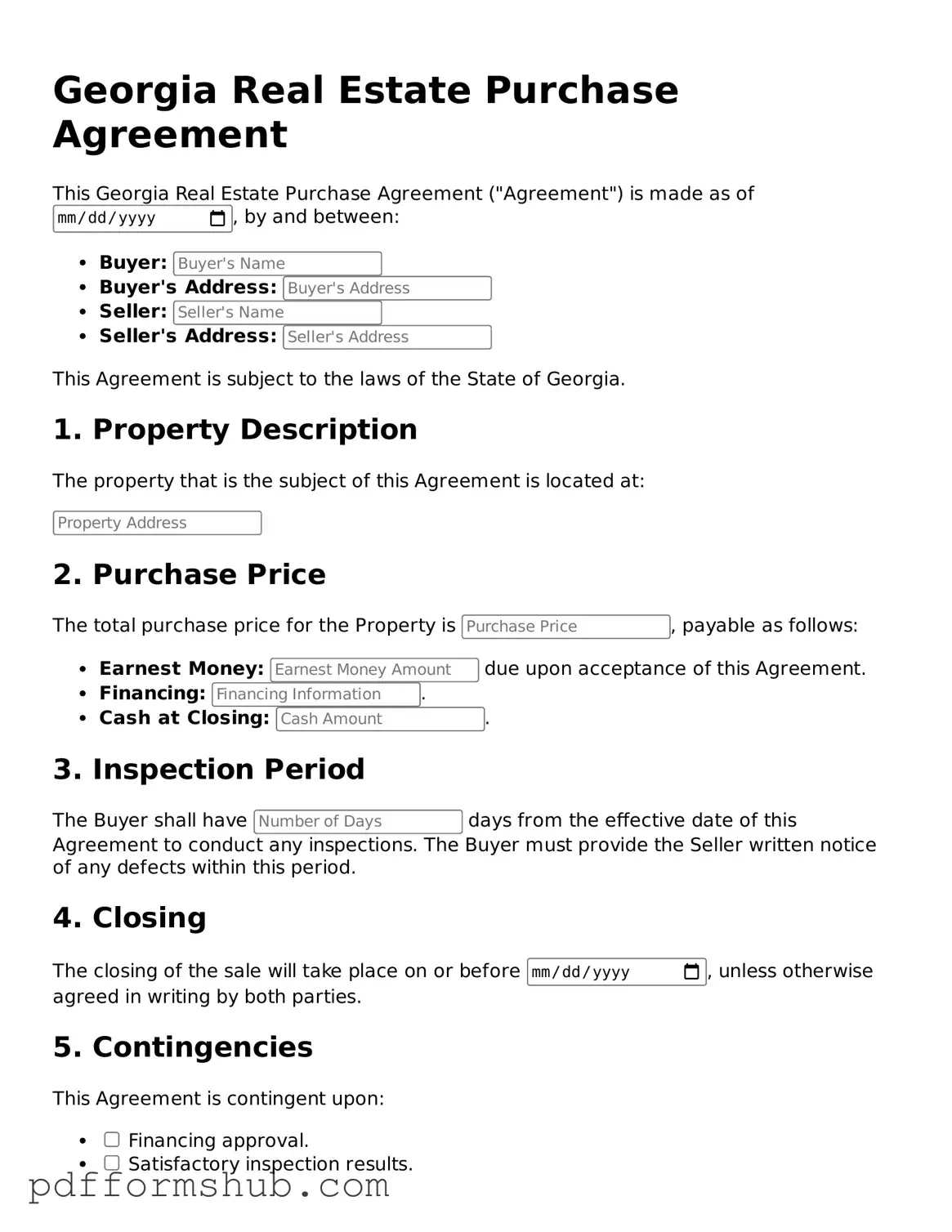Attorney-Verified Real Estate Purchase Agreement Form for Georgia State
The Georgia Real Estate Purchase Agreement form is a crucial document that outlines the terms and conditions for buying or selling property in Georgia. This legally binding agreement serves to protect both buyers and sellers by clearly detailing the expectations and responsibilities of each party involved in the transaction. Understanding this form is essential for anyone looking to navigate the real estate market in Georgia.
Ready to take the next step? Fill out the form by clicking the button below!
Customize Form

Attorney-Verified Real Estate Purchase Agreement Form for Georgia State
Customize Form

Customize Form
or
Free PDF Form
Short deadline? Complete this form now
Complete Real Estate Purchase Agreement online without printing hassles.